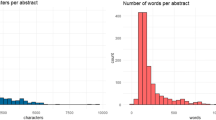Abstract
Michel Foucault’s account of anonymous and mechanized disciplinary power has a curious resonance with Confucianism. He describes how feudal age sovereigns acquired individual status through “rituals, discourse, or artistic reproductions” which excluded the masses. This contrasts with disciplinary power’s function today, eschewing the ceremonial and genealogical for normative surveillance. Foucault does not advocate feudalism, but his lament for the diminishment of ritual and genealogy should be familiar to Confucians. Rejecting the enlightenment notion of the isolated, pure self entering into social compacts, Foucault sees the individual-as-atom as a fiction. Instead, he believes that the industrial age’s new approach to disciplinary power began the constitution of individuals as “correlative elements of power and knowledge.” With a “focus-field” understanding of power, Foucault refuses to treat it pejoratively, there being no outside to power. Instead for Foucault, power’s production of reality, right or wrong, must be faced head on. He writes, “It must cease forever describing the effects of power in negative terms: it ‘excludes’, it ‘represses’, it ‘suppresses’, it ‘censors’, it ‘abstracts’, it ‘masks’, it ‘conceals.’” This throws down a gauntlet, a challenge to which Confucian insights into relational, discursive, and ritualized personhood are well poised to respond.
Similar content being viewed by others
Notes
Carroll and Prickett (2002), Genesis 1:27.
Ibid., Exodus 3:14.
Foucault (1975, p. 138).
Ibid., p. 139.
Ibid., p. 140.
Ibid., p. 169.
Ibid. Surveiller et Punir, p. 179.
Ibid.
Ibid.
Carrol and Prickett 2002, Ephesians 5:21.
Bentham (1995, addendum).
Foucault (1975, pp. 202–203).
Ibid., 194.
Ibid., p. 195.
Ibid.
Ibid., p. 196.
Ibid.
Tu (1968, p. 37).
Clark (2008, p. 248 note 462).
Ames and Rosemont (1998, p. 51).
Ibid.
孔子: 论语译注; Confucius. Analects, §8.8, §16.13, §20.3.
荀子: Xunzi (2 vols.) (1999), §20.2, §20.3 & §20.12.
孟子: 孟子今註今譯. 3rd Edition. Ed. 王雲五. Taipei: 臺灣商務印書館 中華民國六十七年 (1978, p. 410) [四一0 盡心篇第七:七十九 堯舜章 §7.79].
孔子: 论语译注; Confucius. Analects, §13.3.
Ames (2011, p. 109).
荀子: Xunzi, §13.5, §19.3 & §19.9; cf. 孔子: 论语译注, §12.11; Garrison (2015, pp. 31–47).
Tu (1972, p. 194).
Ibid. pp. 190, 194, 197.
Ibid. p. 198.
Ames and Rosemont (1998, p. 51).
孔子: 论语译注; Confucius. Analects, §8.8, 16.3, 20.3.
Cheng (2002, p. 145).
Ames (2011, p. 106).
Shusterman (2008, pp. 215–216).
Foucault (1998, p. 261) [transcript of an English-language interview].
孔子: 论语译注; Confucius. Analects, §1.2.
Ibid., §17.11.
Ibid., §16.5.
Xún Zĭ 荀子. Xúnzĭ (2 vols.), §20.8.
Foucault 1975, pp. 152–153, 156, 222.
Ames (2011, p. 74).
孟子: 孟子今註今譯, §7B79.
Tu (1968, p. 37).
Garrison (2015).
References
Ames, R. T. (2011). Confucian role ethics: A vocabulary. Honolulu: University of Hawai’i Press.
Ames, R. T., & Rosemont, H., Jr. (1998). Introduction. The analects of confucius. New York: Ballantine Books.
Bentham, J. (1995). Panopticon; or, the inspection-house. The works of Jeremy Bentham (Vol. 4). Bristol: Thoemmes Press.
Carroll, R., & Prickett, S. (Eds.) (2002). The Bible: Authorized King James Version. Oxford: Oxford University Press.
Cheng, C. Y. (2002). On the metaphysical significance of Ti (body–embodiment) in Chinese philosophy: Benti (origin–substance) and Ti–Yong (substance and function). Journal of Chinese Philosophy, 29(2), 145–161.
Clark, A. E. (2008). Ban Gu’s history of early China. Amherst, NY: Cambria Press.
Derrida, J. (1972). la différance. Marges de la Philosophie. Paris: Les Éditions de Minuit.
Foucault, M. (1975). Surveiller et Punir: Naissance de la Prison. Paris: Gallimard.
Foucault, M. (1998). On the genealogy of ethics: An overview of a work in progress. In P. Rainbow (Ed.), Ethics: Subjectivity and truth: The essential works of Foucault, 1954–1984 (Vol. 1). New York: The New Press.
Garrison, J. (2012). The social value of ritual and music in classical Chinese thought. Teorema: Revista Internacional de Filosofía, 31(3), 209–222.
Garrison, J. (2015). Confucianism’s role-based political ethic: Free speech, remonstrative speech, and political change in East Asia. In C. K. Lamont, et al. (Eds.), Non-western encounters with democratization: Imagining democracy after the Arab spring. Surrey: Ashgate.
Hall, D. L., & Ames, R. T. (1987). Thinking through confucius. Albany: State University of New York.
孔子: 论语译注. Ed. 金良年. Shanghai: 上海古籍出版社 2004.
孟子: 孟子今註今譯. 3rd Edition. Ed. 王雲五. Taipei: 臺灣商務印書館 中華民國六十七年 [1978].
Shusterman, R. (2008). Body consciousness: A philosophy of mindfulness and somaesthetics. Cambridge: Cambridge University Press.
Tu, W. M. (1972). Li as process of humanization. Philosophy East and West, 22(2), 187–201.
Tu, W. M. (1968). The creative tension between Jên and Li. Philosophy East and West, 18(1/2), 29–39.
Wen, H. (2009). Confucian pragmatism as the art of contextualizing personal experience and world. Lanham, MD: Lexingon Books.
荀子: Xunzi (2 vols.). J. Knoblock. & J. Zhang (Eds.). Changsha: Hunan People’s Publishing House 1999.




